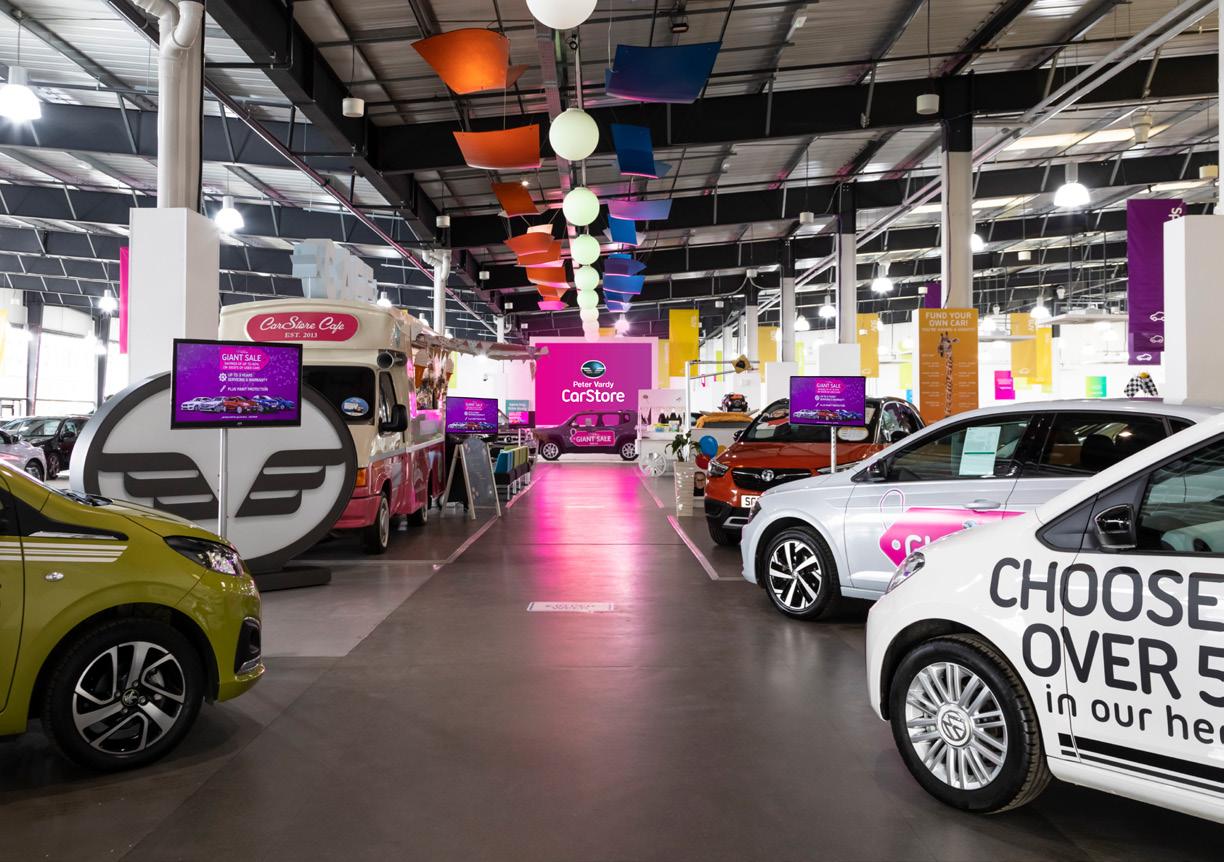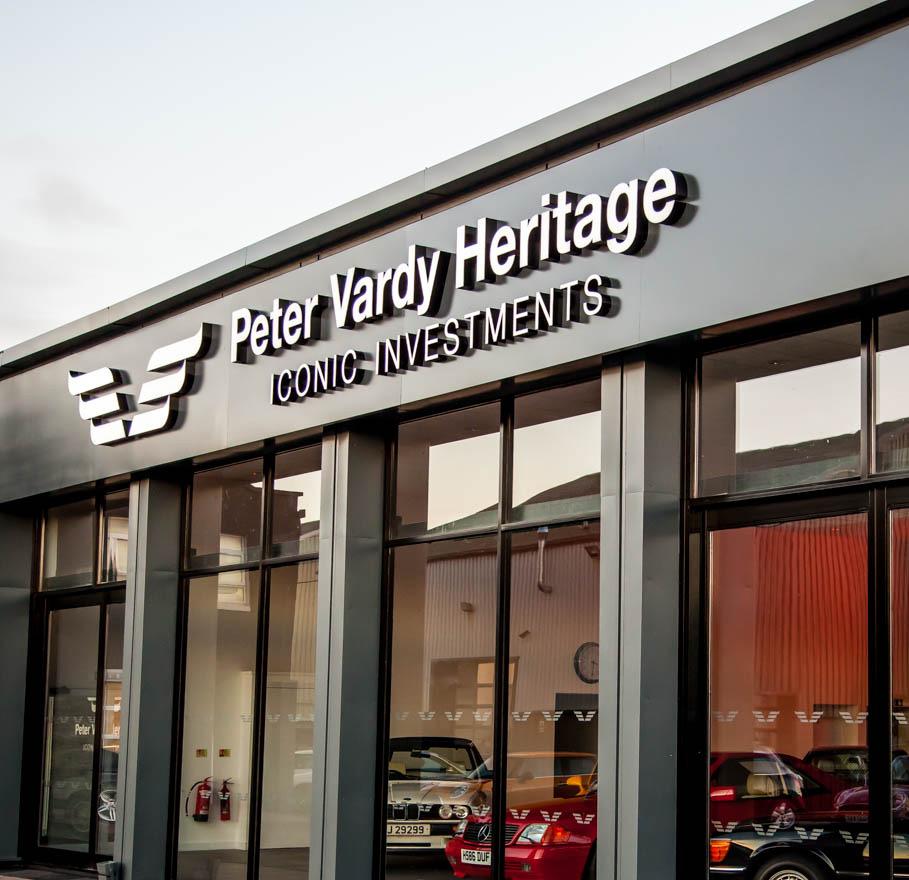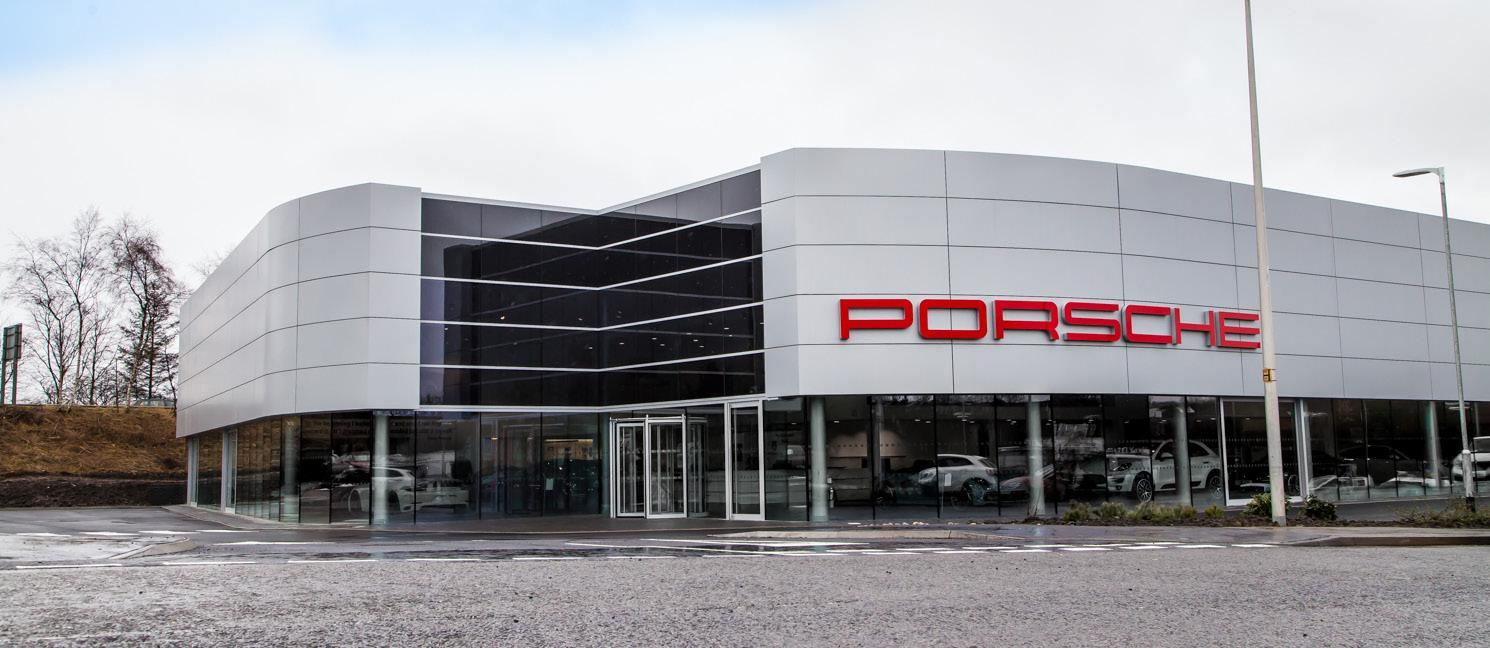
6 minute read
Peter Vardy Interview
James Batchelor chats to Peter Vardy about the future of car retailing with online transactions and teaching the next generation of leaders.


No one would deny coronavirus has had a devastating impact on the motor trade so far in 2020. Closed showrooms, mass redundancies and dealers having to adapt to new, often alien working practices have made for chunky column inches. But that’s not the case with Peter Vardy Ltd.
Peter Vardy – the man with his name over the door of 20 new and used car showrooms across Scotland and the third generation of the Vardy dynasty that’s been so successful in motor retailing since the 1920s – has survived the worst of the coronavirus pandemic by concentrating on two things: looking after his workers and embracing the changing landscape of car retail.
Part of the Vardy empire includes an end-to-end online retail platform called SilverBullet, but that aside, the business as a whole has really grabbed hold of the opportunities that online retailing presents and is making a big success of it.
‘If you’re into e-commerce at the minute and you can get your head around it, then it’s a really exciting place to be in,’ Vardy tells us in an exclusive video interview, available to watch in full on our website – see right.
Exciting and also hugely profitable, too. Vardy says of all the used cars the business sold in August, 14 per cent were online and without any sales person intervening.
‘That’s a massive number,’ he says. ‘That doesn’t mean I need fewer sales people, it means we can sell more cars.’
Vardy says the business has employed more people during lockdown to capitalise on the opportunities brought about through online car sales, including 10 extra drivers to help with deliveries.
That’s something that would be impressive in normal trading times, but even more so when other dealer groups are cutting jobs because of growing online car sales.
‘It’s not my intention to have software replace a sales adviser, especially not if I have good sales people,’ he explains. ‘Overall, our cost-of-sale reduction with software is selling us more cars. When you’re selling a car online, the finance penetration is higher, the add-on sales are higher and there’s no discounting. So, with those 14 per cent of deals being on a higher finance, with more add-ons and being made with no discounting, you can allocate your sales advisers to do other things. This saves you time.
‘If we digitalise our business properly, if we make our sales, service and part departments proper e-commerce departments, then our business is as safe as houses.’
With many big firms and dealers all grappling with the right way to run an online sales model, Peter Vardy is out there already doing it with a template that’s working, and he’s observed how the world of e-commerce is shaping up.
CarStore in Glasgow



Porsche dealership in Perth
‘We’ve seen with Cazoo that you can’t do a pure digital model and have cars delivered to people’s houses,’ he says. ‘From a retailer’s perspective, delivering cars to people’s houses is really expensive, so too are the comebacks and the fulfilment.’
Vardy highlighted two businesses that he and his father – Sir Peter, who built up the family firm Reg Vardy to employ more than 6,000 people and a turnover of £1.7bn – admired: the American businesses CarMax with its online sales tool and Carvana with its bold vendor-machine-like sales method. By mixing together physical and online car sales, dealers can fulfil every customer’s buying preference, he believes.
‘Customers like the idea of going on an online platform and transacting completely online,’ says Vardy. ‘But while it has increased during Covid-19, it’s still not massive.
‘If there are seven steps in the buying process including the handover, a lot of customers want to go along most of that journey online, but then take a test drive or take their part-exchange into the dealership to see if they can get a bit more money for it. Everyone is a bit different.
‘We’ve got three sales processes: Firstly, the customer does it themselves all online; the second is a live sale but assisted by the e-commerce team; and the third is more analogue, so the customer does a bit online, a bit with the e-commerce team but still wants to visit the store and finish it there. If you’ve got all three then that is the perfect scenario.’ E-commerce and online car sales is the future that’s already here, but what about the much-talked-about prospect of UK car retailing being dominated by ‘supergroups’?
‘My dad was a great operator and he said he couldn’t run more than 100 dealerships,’ remarks Vardy. ‘When it gets to that level, it’s very difficult to have any quality. In my opinion, it’s very difficult to get people to run a group of more than 100 dealerships. There are some very talented people at that end and I think even they struggle.
‘I think the manufacturer doesn’t like them either – they like regional players who get to know the area and then do a good job – and I think the staff don’t like them either. They feel like they’re just a number.’
Staff happiness and development are key beliefs for Vardy. The firm has embarked on an ambitious programme to teach all schoolchildren in Scotland leadership skills (see panel), and looking after his staff has been a major focus for Vardy during the pandemic.
Senior staff have taken pay cuts, staff holidays have been postponed until Christmas, and a four-day working week has been agreed and will be rolled out if trading performance later this year necessitates it. But Vardy has been upfront with staff who are all ‘on board’ with the changes, and there have been no redundancies – something that is unusual in current times.
But what of the rest of the year?
‘If I can look after all the folks well, by the time we get to Christmas then I will be over the moon,’ he says. ‘With my really optimistic head on, we might perform the same as last year. With my realistic head on, we might get a decent August and September and see what happens in quarter four. And my pessimistic head is we won’t make any money at all. As a family, we can get through this, learn as much as we can, and keep the team together and everyone looked after. That would be a result.’
FOUNDATION


Children are being taught to be future and better leaders
PETER Vardy believes the motor industry is full of great people but says leadership skills aren’t being taught to the next generation.
It’s for that reason The Peter Vardy Foundation – which already supports charities and projects around the world – is teaching Scotland’s 277,000 schoolchildren leadership skills.
‘Over the next 10 years we’re trying to teach every child in Scotland “leadership” before they leave school,’ says Vardy.
‘We’ve developed an online leadership platform, and when the young people complete it, they get a qualification.
‘It’s a global plan starting here, which we’ll roll out in other languages.
‘I’ve been very fortunate to have some great leaders around me and that has spurred me on to learn more. When a leader gets better, everyone wins. That’s why we are going into schools to make the next generation better leaders than us.’











